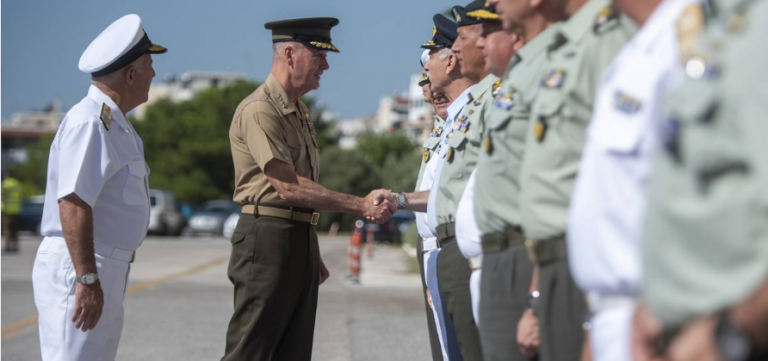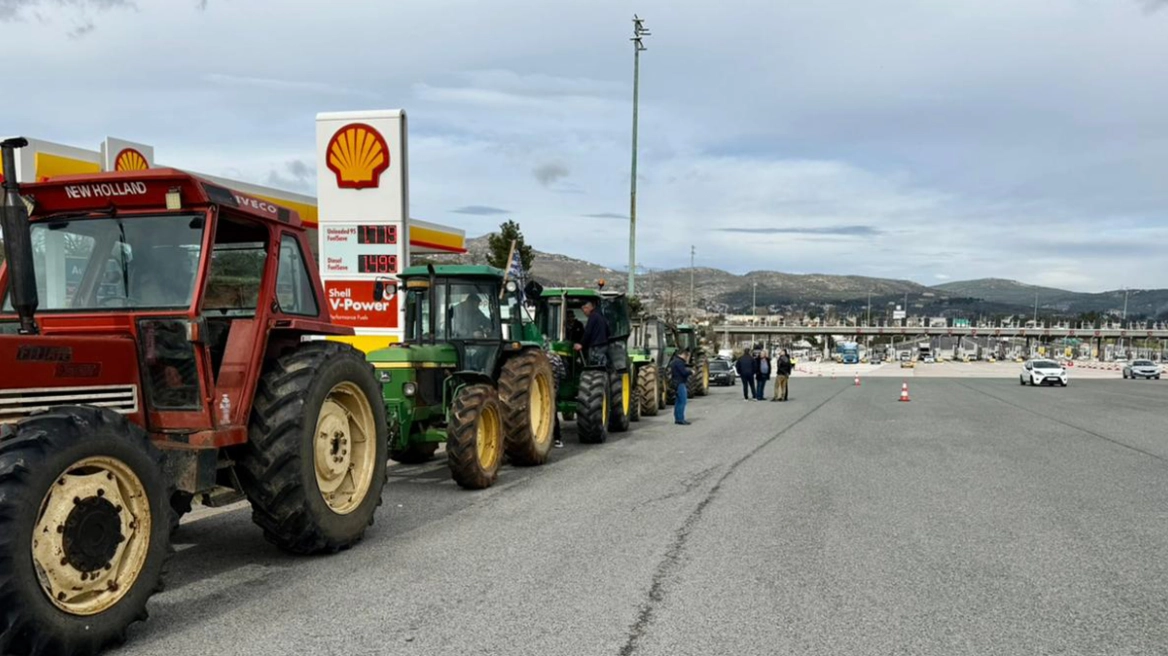The U.S. military is in talks to expand its operations in Greece, including using more air and naval bases here, signaling a potential move toward the eastern Mediterranean amid growing tensions with Turkey, officials said.
There are both geopolitical and geographical factors that make Greece an appealing site for the U.S. military, the officials said. Politically, U.S.-Greek relations are at an apex and both nations have concerns about their North Atlantic Treaty Organization partner, Turkey, U.S. officials said. Geographically, Greece has ideal weather for year-round flight training and is home to both Greek and NATO bases.
Perhaps most importantly for the U.S., both the current Greek government as well as its leading opposition are receptive, U.S. officials said during a visit in recent days. Officials said they see an opportunity for increased use of Greek facilities and for staging more troops here on a temporary basis.
“The geography of Greece and the opportunities here are pretty significant,” Marine Gen. Joe Dunford, the chairman of the Joint Chiefs of Staff, told reporters traveling with him, citing Greece’s proximity to U.S. operations in Syria and North Africa.
The U.S. has begun expanding its use of Greek bases. This spring, unarmed MQ-9 Reaper drones began operating out of Greece’s Larisa Air Force Base.
Officials stressed that the talks, led by Army Gen. Curtis Scaparrotti, the supreme allied commander for Europe, are preliminary and don’t include proposals for permanently stationing troops or equipment. While Greece offers a number of advantages, the increased use of Greek resources isn’t intended to replace—or hedge against—the future of U.S. operations at Incirlik Air Base in Turkey.
“Our bilateral relationship with Greece is not in any way intended to be at the expense of Turkey,” Gen. Dunford said.
Incirlik is larger, designed for NATO operations and closer to Syria, where the U.S. military is conducting its campaign to root out the last of pockets of Islamic State fighters and territory.
But the 2016 attempted coup by opponents of Turkish President Recep Tayyip Erdogan, Turkey’s purchase of Russia’s S-300 missile system and U.S. support in Syria of Kurdish fighters, a group whose members Turkey considers terrorists, have all contributed to tensions between the two countries, heightening Greece’s appeal.
Since 2015, the Turks have added restrictions to the kind of operations the U.S. can conduct out of Incirlik. In response, the U.S. has shifted its resources to places like Qatar to conduct operations in Syria.
For years, the U.S. military has used the naval base at Greece’s Souda Bay, on the coast of Crete, the only port in the region that has the water capacity for aircraft carriers to dock. In May, the carrier USS Harry S. Truman conducted a four-day port visit in Souda Bay. The following month, President Trump’s plane stopped into Souda Bay to refuel en route to the talks in Singapore with North Korean leader Kim Jong Un.
But Souda Bay now is at capacity, one U.S. official said, leading to demand for other options.
For Greece, more U.S. port visits and training exercises would mitigate the security threat from Libya and Turkey, the latter about which Greece is “deeply worried,” the U.S. official said. On Sunday, Greek officials said they arrested two Turkish military personnel for illegally trying to cross the border, and later released them, an incident that prompted statements by the armies of both countries.
Greece is “looking around this neighborhood and recognizing the same instability…that we have,” the official said.
Greek diplomatic officials didn’t directly address the military cooperation talks but noted the country is strategically situated and already meets the NATO defense spending target of 2% of its gross domestic product.
At an event in the city of Thessaloniki this month, Greek Minister of Defense Panos Kammenos praised U.S.-Greek relations through the decades. “We will move together to the future,” he said. “Military agreements expand and this will help Greece in being a strategic partner throughout the Mediterranean.”
The region also is the focus of other big powers. China has expanded its footprint in the eastern Mediterranean and Russia uses Syria as a key staging area for its operations in the region. Greece also has a longstanding relationship with Russia.
Regardless, Greece is “a pretty good bet,” the U.S. official said.
Source: wsj
Ask me anything
Explore related questions





